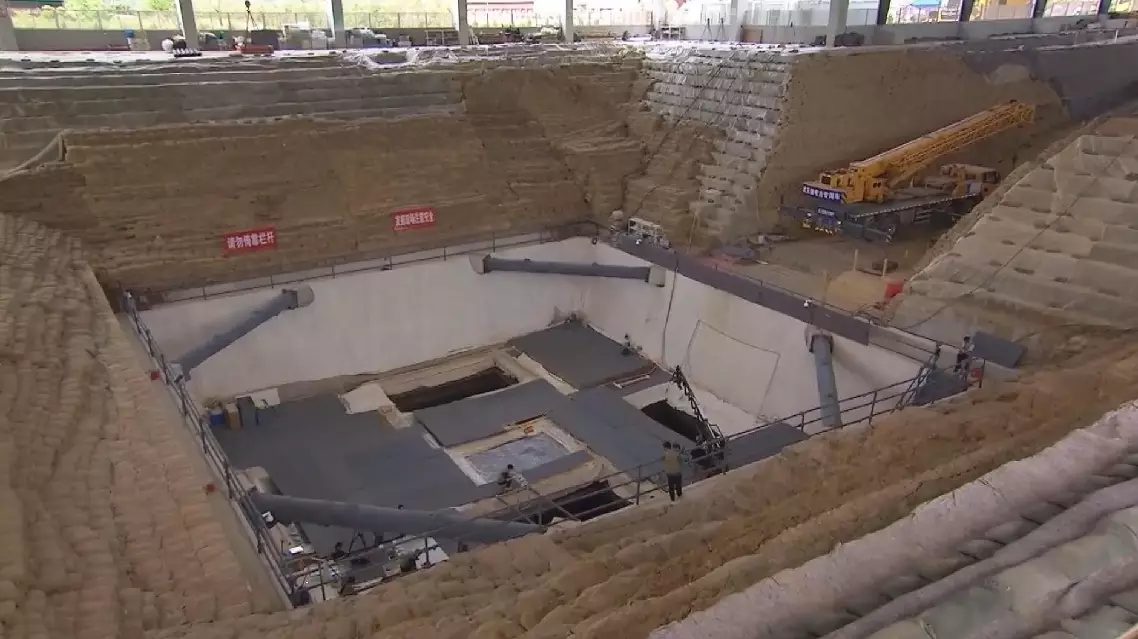The German government on Wednesday lowered its economic growth forecast for 2025 to 0.3 percent, instead of the previously projected 1.1 percent.
The revision underscores the persistent challenges facing Europe's largest economy amid ongoing external and structural pressures.
The fall is partly attributed to the collapse of the country's ruling "traffic light coalition," including the Social Democratic Party, the Greens, and the Free Democratic Party, which has led to the suspension of growth stimulus initiatives, according to the annual economic forecast report released by the Federal Ministry for Economic Affairs and Climate Action.
Meanwhile, heightened uncertainties over the economic and trade policies of the Unites States, along with the upcoming elections in Germany, are further weighing on the already fragile growth outlook, the report said.
The German economy contracted by 0.2 percent in 2024, marking the first back-to-back decline since the early 2000s.
The country's consumer sentiment index for February is expected to drop to minus 22.4 points, down from the previously predicted minus 21.4 points, indicating a weakening in consumer confidence, according to a report released by the market research agency GfK on the same day.

German gov't slashes 2025 growth forecast to 0.3 pct

German gov't slashes 2025 growth forecast to 0.3 pct
The top six archaeological findings across China in 2024 were announced at Wednesday's annual archaeology forum hosted by the Chinese Academy of Social Sciences.
The discoveries, covering from the Paleolithic Age to the Yuan (1271-1368), Ming (1368-1644), and Qing Dynasties (1636-1912), shed light on studies on the history and culture of ancient China.
The earliest of the six, the Dadong Site, is located in Jilin Province in northeast China. Discovered in the strata dating from 28,000 to 24,000 years ago, the site involves an artificial stone circle, which should be the remains of a primary shed of ancient humans, implying the archaeological importance of the Changbai Mountain area in the field of evolutionary anthropology studies.
The Xiatang Site in east China's Zhejiang Province, a Neolithic Age settlement site, reveals the structure and layout of the ancient village, providing new evidence for the study of the social structure of early-stage agricultural societies.
At the Siwa Site, another Neolithic Age site in northwest China's Gansu Province, the first prehistory large-scale near square-shaped moat was discovered, which might hint at the origin of the square-walled cities in China.
The Zhouyuan Site in Shaanxi Province of northwest China shows evidence of China's earliest dynasties, providing written materials for studying the history of Western Zhou Dynasty (about 1046 – 771 BC). With over 200 bone and tortoise shell pieces for divination rites being found, phrases totaling over 180 oracle scripts were recognized, covering documentations of astronomy, calendar, history, and geology.
At a Warring States period site in east China's Anhui Province, the Wuwangdun Site, researchers excavated over 10,000 pieces of cultural relics, including multiple Ding sets, or special cauldron sets, the representative ritual vessels that have long been used to represent social class and nobility, and symbols of China's traditional rites and ethnicity.
In east China's Jiangxi Province, the archaeological site of Jingdezhen City, the world-famous town of porcelain with a thousand-year history, welcomed new discoveries. The latest discoveries at the Jingdezhen Site revealed the sources of materials and fuels that supported the large-scale porcelain production, as well as the local traffic net in the Yuan, Ming, and Qing Dynasties, giving people a perception to understand Jingdezhen's development history.
"These discoveries are not only about gathering ancient relics in the fields, but, more importantly, about their value for academic research. Every single result complements our understanding of Chinese history and culture," said Shi Jinsong, the deputy head of the Institute of Archaeology at the Chinese Academy of Social Science.

China unveils top archaeological findings of 2024

China unveils top archaeological findings of 2024























































